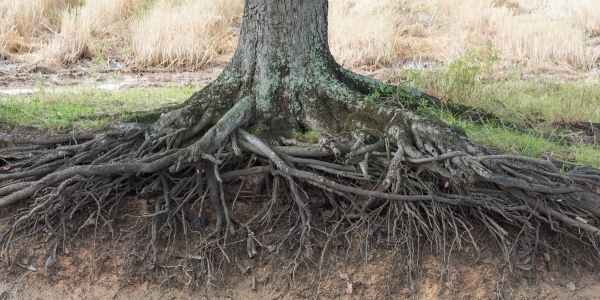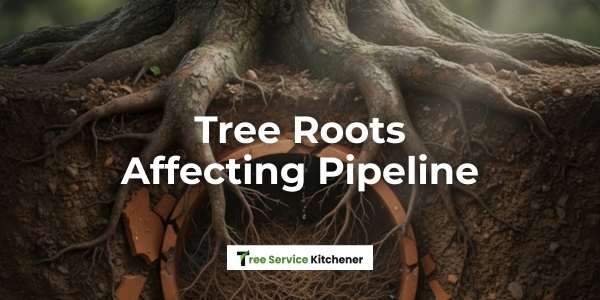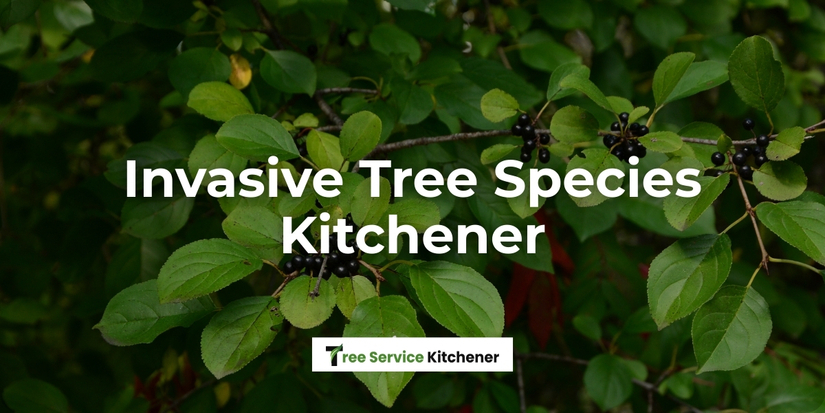Standing in your Kitchener backyard last October, watching your neighbor’s old maple collapse during a mild windstorm, you might have wondered: “Could I have seen this coming?” The answer is yes. Tree failures rarely occur without warning. Root problems develop gradually, and there are often clear signs months or even years in advance.
With more frequent storms, fluctuating soil moisture, and urban development in Kitchener creating root stress, learning to detect distress early is essential. Early detection saves lives, prevents property damage, and reduces costly emergency removals. At Tree Service Kitchener, we’ve seen firsthand how preventative care could have avoided many emergency calls. This guide highlights early visual clues and professional intervention strategies to keep your trees healthy and secure.
Above-Ground Warning Signs: What Your Tree’s Canopy Is Telling You – Insights from Tree Service Kitchener Experts
Canopy symptoms often reveal underground issues long before roots fail. A comprehensive study on urban tree health and root diseases by the International Society of Arboriculture (ISA) highlights how early detection and professional care reduce tree failure risks significantly. Look for:
- Yellowing leaves during the growing season – a sign of poor nutrient absorption from root disease or compaction.
- Premature leaf drop or thinning foliage in summer months – trees shedding leaves to minimize water stress.
- Crown dieback starting at branch tips and moving downward – an indicator of reduced root function.
Homeowners in clay-heavy Kitchener soils often see these symptoms worsen after heavy rains or nearby construction. Early professional inspection from Tree Service Kitchener can often reverse damage through soil restoration, root aeration, or targeted treatments.
Structural Red Flags: When Trees Signal Imminent Danger – Tree Service Kitchener Recommendations
- Sudden leaning or tilting – even a 5–10° shift indicates potential root plate failure.
- Soil heaving or cracking around the base – evidence the root system is unstable.
- Epicormic sprouting (new shoots from the trunk base) – a survival response to severe stress.
If you observe more than one of these signs, restrict access around the tree and schedule a professional assessment immediately. Many property owners misjudge urgency—delaying even weeks can lead to total collapse. Call Tree Service Kitchener for trusted emergency evaluations and services.
The Fungal Evidence: Identifying Root Rot Before It’s Too Late – Advice from Tree Service Kitchener Professionals

Fungi are nature’s most visible clues. Watch for:
- Armillaria (Honey Fungus): Golden-brown mushrooms clustered around the base in late summer.
- Phytophthora Root Rot: No mushrooms, but dark, water-soaked bark at the soil line with a sour odor.
- Ganoderma (Bracket Fungus): Shelf-like growths on trunks or roots—signs of advanced decay.
Kitchener’s humid fall weather often triggers fungal fruiting, making late summer and early autumn ideal for fungal inspections. If mushrooms or bracket fungi appear, contact a certified arborist at Tree Service Kitchener for immediate evaluation.
Soil and Environmental Factors That Accelerate Root Decline – Key Insights by Tree Service Kitchener
- Soil compaction from vehicles, foot traffic, or construction equipment.
- Water fluctuations—cycles of drought and saturation common in local clay soils.
- Construction damage severing roots during utility or landscape work.
- Salt contamination from winter road treatments impacting soil chemistry.
Long-term root decline results from cumulative stressors. Proactive soil management, moisture control, and protection barriers during nearby construction can drastically reduce failure risk. Tree Service Kitchener recommends regular soil assessments to identify risk factors early.
Professional Assessment: When to Call Tree Service Kitchener Experts
DIY observation helps, but professional diagnostics deliver precision. Call Tree Service Kitchener when you notice:
- Leaning trees or visible soil upheaval
- Repeated leaf yellowing or crown dieback
- Visible fungi or mushroom clusters near the trunk
- Trees near buildings, sidewalks, or high-traffic areas showing decline
Tree Service Kitchener uses resistograph testing and sonic tomography to detect internal decay and provide precise health assessments. Early professional evaluation can prevent costly removals later.
Prevention Strategies: Protecting Your Trees for the Long Term with Tree Service Kitchener
- Improve soil health: Aerate compacted zones, add organic compost, and monitor pH regularly.
- Manage drainage: Ensure surface runoff doesn’t pool around tree bases.
- Mulch correctly: Apply 5–10 cm of organic mulch, keeping it away from the trunk base.
- Schedule annual inspections with Tree Service Kitchener: Preventive check-ups identify early-stage root problems before they escalate.
- Protect during construction: Install root barriers and fencing to minimize compaction and disturbance.
Consistent monitoring and soil management can add decades to your trees’ lifespan. Prevention costs a fraction of emergency removal and replacement.
Protect Your Trees with Trusted Tree Service Kitchener Experts
Don’t wait for visible damage or fallen branches to reveal hidden danger. Schedule a professional root health inspection with Tree Service Kitchener today to protect your property and peace of mind.Book Your Tree Assessment Now with Tree Service Kitchener
© 2025 Tree Service Kitchener – Certified Arborists Protecting Waterloo Region’s Trees
FAQs)
- How often should I schedule professional tree inspections with Tree Service Kitchener?
It is recommended to have your trees inspected at least once a year, especially after severe weather events. Regular inspections by Tree Service Kitchener help catch root and structural problems before they become emergencies. - Can Tree Service Kitchener handle emergency tree removal if a tree poses immediate danger?
Yes, Tree Service Kitchener offers 24/7 emergency tree services to safely remove hazardous trees and protect your property from damage. - What is the best time of year for tree root health treatment in Kitchener?
Early spring and mid-fall are ideal times for root care treatments as trees are entering active growth or preparing for dormancy, allowing better recovery and strengthening. - Does soil quality affect the likelihood of root diseases in urban trees?
Absolutely. Poorly drained, compacted, or nutrient-deficient soils increase root stress and susceptibility to diseases, making soil management crucial for tree health. - What preventive steps can I take to avoid costly emergency tree removals in Kitchener?
Consistent watering during droughts, mulching, avoiding soil compaction, and timely professional inspections by Tree Service Kitchener can greatly reduce risks and prolong tree life.
People Also Ask (PAA)
- What causes root rot in trees not mentioned in the article?
Root rot can be caused by poor drainage combined with fungal pathogens introduced through contaminated soil or infected plant material. - Can I treat root problems myself before calling professionals?
Minor issues like improving soil aeration or removing debris might be addressed by homeowners, but most root problems require professional diagnosis and treatment. - How do construction activities affect tree root systems?
Excavation and heavy machinery can sever roots and compact soil, reducing oxygen and water availability, stressing trees over time. - Why do some trees in urban areas decline faster than others?
Urban stressors like pollution, limited root space, and mechanical damage create an environment where some species are less resilient, accelerating decline. - What distinguishes a certified arborist from other tree service providers?
Certified arborists have specialized training and credentials in tree biology, diagnosis, and care, ensuring expert evaluations and safe, effective treatments.



